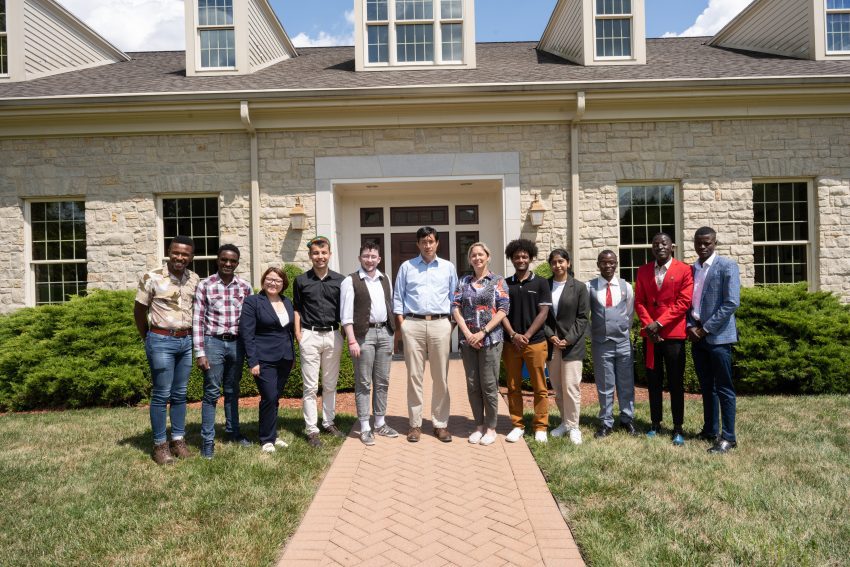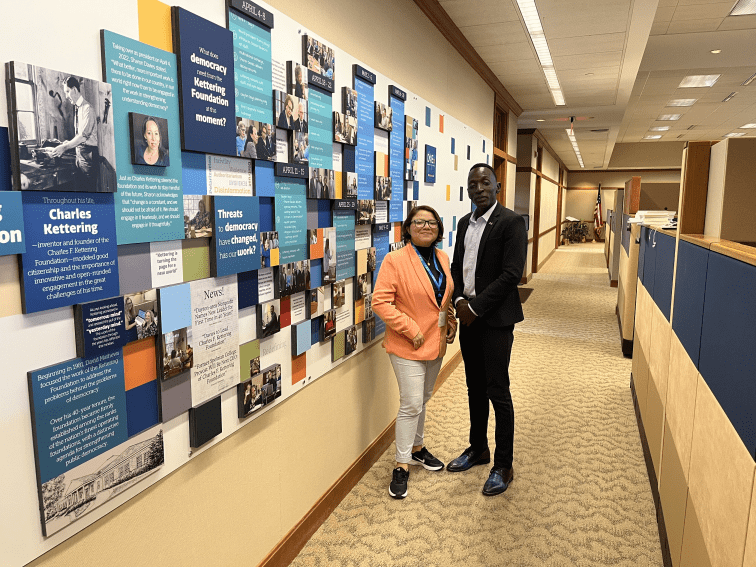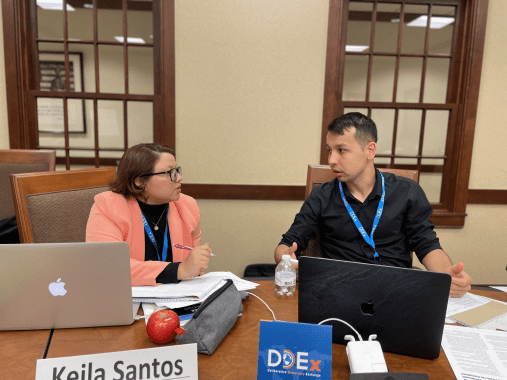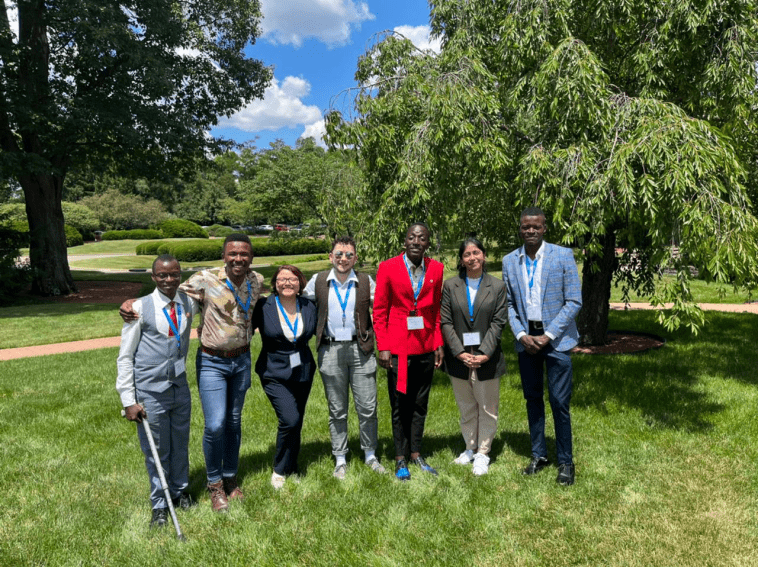Next Generation Leaders at the Deliberative Democracy Exchange 2022
For two years, the Talloires Network of Engaged Universities’ Next Generation Leaders have convened online to practice structured listening methods, including critical steps such as naming and framing controversial public issues. In July 2022, nine NGL students from eight countries travelled to participate in the Kettering Foundation’s Deliberative Democracy Exchange (DDex) in Dayton, Ohio, to begin designing their next collaborative experiment in public deliberation. Their collaboration will continue for the months to come and will culminate in an online global deliberative forum for Network members in December 2022. Stay tuned for additional information!

Student Leaders at DDex 2022, Dayton, Ohio
The three-day workshop invited students to share their experiences with public life in their home country that make deliberation especially timely or urgent. The concerns they shared included corruption, tribalism, racism, climate change, access to education, hardening of borders, violence against women, infant mortality, misinformation, and political polarization. Sharon Davies, President and CEO of the Kettering Foundation joined this portion of the discussion and underscored an observation made by Patrovas (Uganda), that “it is easier to straighten a tree when it is young and tender.”
“Universities should be co-creators of knowledge; they should not be separated from communities.”
— Bakhile (South Africa)
“Deliberation creates a culture of asking questions, listening, and interacting in new ways — brings you out of the textbook, to create a community that critically thinks about everything.”
— Faiza (Saudi Arabia)
Following this exchange, students discussed potential solutions and methodologies to improve these issues and concluded that structured listening methods are necessary when stakeholders are in a state of misunderstanding. Disagreement is to be expected and it is important to develop an understanding of the disagreement. At this point in the exchange, students transitioned to creating a space to discuss “Policing and Safety,” using an issue guide. They had a robust discussion about on the subject using the key strategies of a structured public deliberation.

NGL students Keila Santos, Universidad Camilo José Cela (Spain) and Patrovas Gabriel Okidi, Makerere University (Uganda)
In the next stage of the exchange, students began the basis of creating their own issue guide by choosing an issue and discussing the concerns around the issue. Questions posed included: What are the qualities of the issue? Is it a source of disagreement? Is it an issue that impacts everyone? Students brought forth a variety of issues, including: (1) climate change; (2) inequality; (3) violence against women; (4) rule of law; (5) injustice; and (6) polarization. Ultimately, they proceeded with unpacking concerns about inequality, which were many, and included dimensions of wealth, education, jobs, housing, rights, and health care.

NGL students Keila Santos, Universidad Camilo José Cela (Spain) and Jon Akhmedjonov, Central European University (Austria)
Following this, students moved on to the task of “naming the issue.” The group came up with: “Equity and Equality: the role of universities in creating healthy, safe, and sustainable communities.” They brainstormed all the possible actions, then grouped them as follows:
- Make sharing university resources with the community the priority
- Make changes to the culture of the university the top priority
- Make opportunities for students & faculty the top priority
As the group approached the final hour of their time together, they were asked, “What insights have you gained into the nature of deliberative civic engagement? How is deliberation relevant to your personal goals and aspirations for the future?”
In their own words, students explained:
“I have an interest in access to education. I have been mentoring students and teaching mechanical engineering courses. How might I bring deliberation into the classroom, I wonder? We need more than technical knowledge; we need to translate knowledge into policies and strategies in the community.”
— Philip (Lebanon)
“I care about gender education. We need to create strategies for women in these situations. We can use deliberation to work together with other students to address violence.”
— Keila (Spain)
“The Kettering Foundation’s approach greatly resonates with me as a growing professional who is focused on health system responsiveness.”
— Bakhile (South Africa)

NGL students